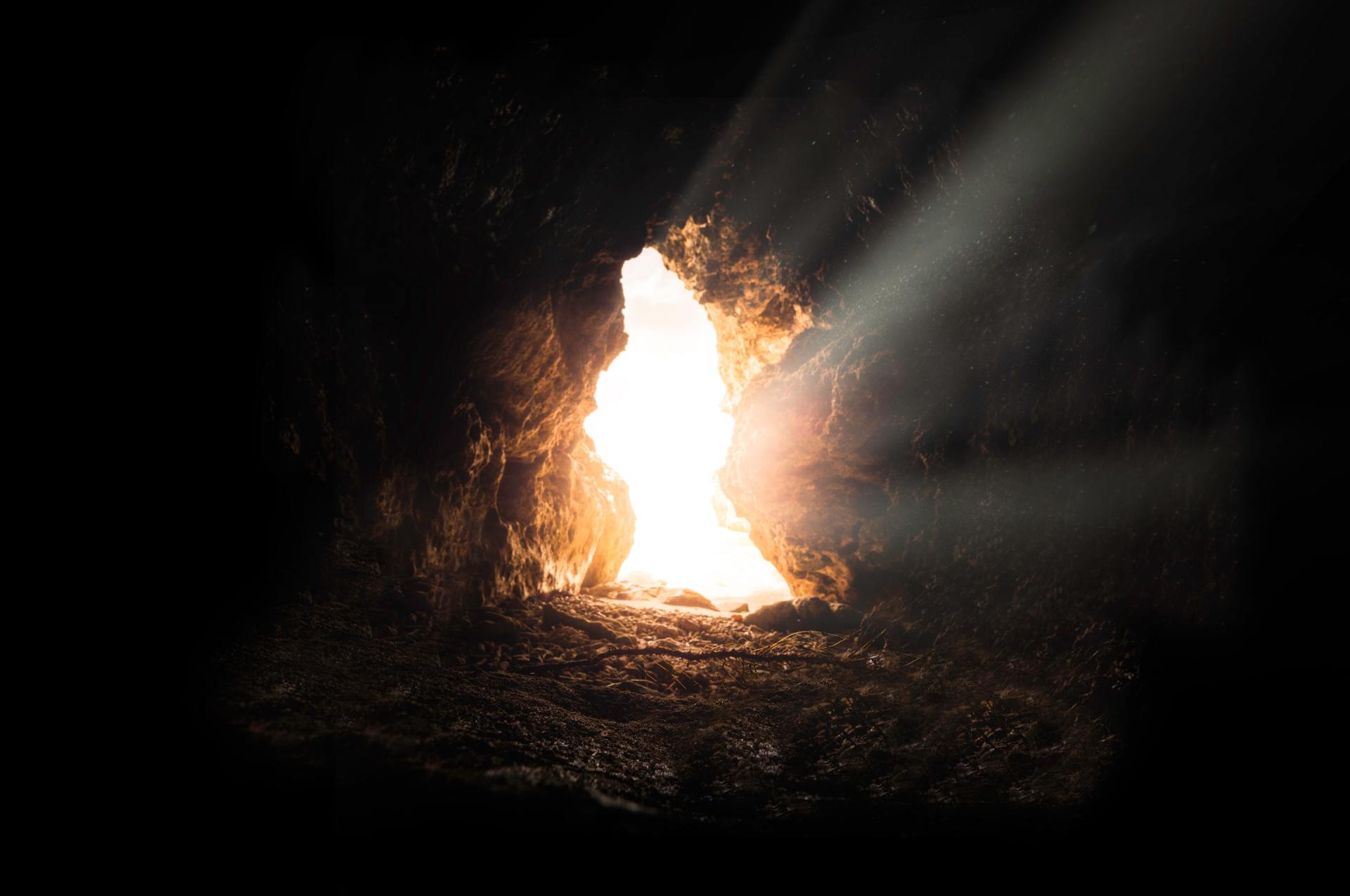Seven Reasons You'll Rise from the Dead
If/Then.
Two little letters in Greek, eta-iota, get translated as two little conditional letters in 1 Corinthians 15:12-19, i-f. The conjunction is conditional, often positioned upstream from “then.” If such and such is true then such and such logically follows. The biblical author of 1 Corinthians is interested in entertaining the ramification of professing Christians denying the bodily resurrection of the dead. He’s concerned about it. You should be too. Let’s look at 7 “if” concepts from 1 Corinthians 15:12-19.
First
, If you can’t be raised then how is it plausible that Christ was raised? The writer believes strongly that if you can’t be assured of resurrection then you can’t be sure of Christ’s resurrection. He links them in his argumentation. The link is assumed in the next six if’s.
Second
, If you can’t be raised, then preaching is in vain. The entire infrastructure of Christian preaching is built upon bodily resurrection. The content of preaching matters more than the personality of the preacher. The content of the gospel centers on resurrection: Christ died, buried, resurrected, appeared, ascended (see 15:3-4). Resurrection matters. So preaching matters.
Third
, If you can’t be raised, then faith is in vain. Faith falls apart. It’s empty. It’s in vain, futile. It is by grace you are saved through faith. Trading biblical doctrine for something more digestible winds up getting you choked. Without resurrection, faith is in vain.
Fourth
, If you can’t be raised, then the Scripture writers misrepresented God. To give false witness is an offense against the commandments (Exodus 20:16). A false witness will not go unpunished (Proverbs 19:5). God-fearing people, like the writer of 1 Corinthians 15, knew the ramifications for their actions. Lying didn’t benefit them in Rome and it wouldn’t benefit them in eternity. Resurrection and the biblical message are inextricably linked.
Fifth
, If you can’t be raised from the dead, then you’re still in your sin (15:17b). Your faith is futile in the sense you’re still un-atoned in your sin. All of those Old Testament sacrifices are still needed at best and are ineffective at worst. To deny messianic resurrection is to nullify the point of that sacrificial system. Departing from orthodoxy comes with consequences. We trade our problem with the supernatural with the problem of inconsistent reasoning. We are not “still in our sins” because Christ is risen. Romans 4:25 links resurrection with justification—being made right in God’s eyes, Christ was delivered up for our trespasses and raised for our justification. He conquered the capstone result of sin, that is, death. So you’re not still in your sin.
Sixth
, If you can’t be raised from the dead, then funerals are final. Those who have fallen asleep in Christ have perished. Bodily burial upon funerals is an opportunity for Christian preachers to preach the faith-based belief that God will reunite the eternal being with this body resurrected upon the return of Christ. Just as he ascended to heaven, he will descend and the dead in Christ will rise first (1 Thessalonians 4:16). The Scripture writers instruct us to expect the first death but to fear the second death. The sting of the first death was swallowed up in the promise of resurrection. There’s a hope in every promise.
Seventh
, If you can’t be raised from the dead, then you have hope in this life only. We are the pitiable souls trying to preach Christian hope for the here and now only. We subject the power of our gospel message to the futility of therapeutic counseling alone. The big existential problem is the grave. Without conquest of the grave, there is no Christian hope, there is no meaningful Christian counseling.
William Cowper suffered a life filled with depression and doubt. Near the end of his life, as a Christian, he counseled himself in the power of the resurrection. Though he had been tortured by the doubt that God hated him for sins, he penned these words, near death, in the year 1800. In writing these words, Cowper expressed his awareness of the efficacy of Christ’s complete atonement for his sins. He wrote, and now we sing, There Is A Fountain Filled With Blood, Drawn from Emmanuel’s veins, And sinners plunged beneath the flood, Lose all their guilty stains…The dying thief rejoiced to see, That fountain in his day, And there have I, though vile as he, Washed all my sins away . . . Redeeming love has been my theme, And shall be till I die.”
Let’s not sell the family farm of our salvation to accommodate modern sensibilities.
Oh Christian, take heart. Christ is risen so you will be too.











